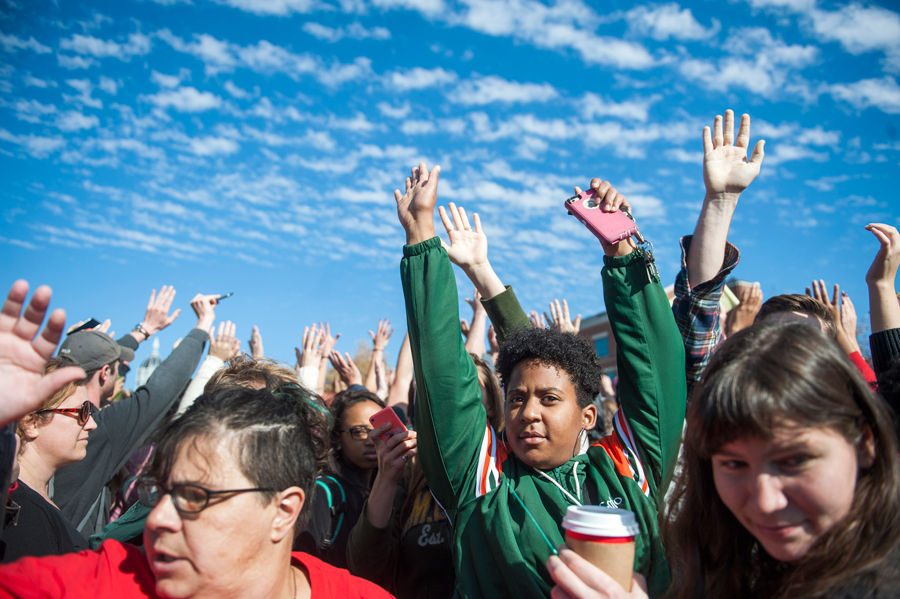Student press is entitled to its First Amendment rights
Every week the editorial board reflects on a current issue in Our View. The position taken does not reflect the opinions of everyone on the Hilltop Views staff.
On Monday, a student photographer was forcibly prevented from taking photographs as student activists demanded and succeeded in attaining the resignation of University of Missouri’s President, Timothy M. Wolfe.
Tim Tai, the student photographer, had attained a freelance assignment from ESPN to photograph the successful activists as events unfolded. The activists were in a tent city that was on a public area of campus, Tai had every right to photograph the event given his First Amendment Rights.
These events have implications that stretch beyond the up in arms rhetoric surrounding First Amendment Rights. They point at a collision of two forces that have permeated many universities: the marginalization of minority students and freedom of expression.
The First Amendment is what makes it legal for these students to protest, and to call for the resignation of Wolfe. These students had enough of being marginalized, and having authority figures do nothing about it. It is a moment where people gathered and called for change. It should be a celebrated moment…
Except in telling Tim Tai that he had no right to be there, that he was unethical, that he was a contributing factor to the problem these protesters face, they sent a message that civil rights are a game of duck duck goose.
Advocating for freedom and equality was all fine and good until it stepped on the toes of these protesters. Or maybe they were stepping on Tai’s when they taunted and pushed him.
Nevermind that a professor at the university, Melissa Click, called for some “muscle” to remove Tai from the event. She resigned on Tuesday.
There can be an argument made that these student protesters had every right to be defensive against any form of media, given the often skewed narrative media tends to concoct.
Except that argument is a load of crap when you apply it to a student journalist. The worse that a student journalist can do to you is misconstrue a fact here or there, and pry into a topic that let’s be honest, should be discussed in a public stratosphere.
Say what you want about journalists in the professional world — they can be unethical, they can skew narratives for their own gains and they can be insensitive.
But don’t let that be the characterization that you give to all journalists, especially student journalists. They are working to provide students with information that is reflective of the politics, society and culture that is ongoing.
Even here at St. Edward’s University, there seems to be a gridlock against student journalists — student organizations don’t want to be available for comment, it’s like pulling teeth with UPD and there are endless channels a reporter must go through before they get a single statement.
Why is that? If there is a problem, why not start a discussion about it? If student journalism is really beginning to reflect the worst parts of media, then why not re-structure it, engage in constructive dialogue; we do it for everything else on this campus.
These student reporters are not doing this job in their spare time. They are working their schedules around interviews, they are updating stories, staying up late to make deadlines, they are in the office upwards of eight hours getting the issue ready and perfecting AP style — no one would wish AP style on their worst enemy.
No one bats an eyelash at the Political Science student interning at the Texas Capitol, no one seems annoyed at the Biology major conducting independent research, or the Psychology student looking for students to survey. So why should there be push back at the student that just wants to report on what’s going on at their university?







